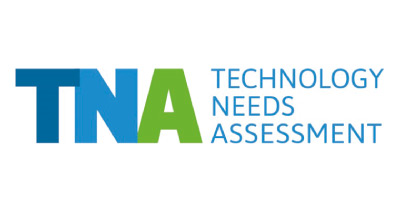TNA

Seven experts of Bioenergy association of Ukraine participated in the TNA project.
Published reports
Barriers Analysis and Enabling Framework. April 2020
Technology Needs Assessment. July 2020
Technology Needs Assessment (TNA) is a set of country-driven activities leading to the identification, prioritisation and diffusion of environmentally sound technologies for mitigation and adaptation to climate change. The TNA project is implemented by the United Nations Environment Programme and the UNEP DTU Partnership on behalf of the Global Environment Facility.
- Project implementation period in Ukraine: 2018-2020
- Project Coordinator in Ukraine: Department of Climate Change and Ozone Conservation of the Ministry of Ecology and Natural Resources of Ukraine.
- Coverage of the whole project: 70 countries
- Duration of the whole project: 2005-2020
- Budget: USD 20 million
- The TNA project is implemented by the United Nations Environment Programme and the UNEP DTU Partnership on behalf of the Global Environment Facility.
Acknowledging the importance of technological change in reducing emissions and stabilizing atmospheric concentrations of GHGs, Technology Needs Assessments were directly referenced in the Paris Agreement and helping developing countries conduct effective Technology Needs Assessments and implement Technology Action Plans has become instrumental to the UNFCCC process.
The most relevant technologies for use in Ukraine
Within the Project, priority technologies for reducing greenhouse gas emissions in Ukraine in agriculture and waste management have been identified. According to the results of the evaluation, the most relevant technologies for use in Ukraine are:
– in the agricultural sector:
Organic farming (available in Ukrainian)
Technologies of minimum tillage (low-till, no-till, strip-till, etc.) (available in Ukrainian)
Production of biogas from animal manure (available in Ukrainian)
Production and use of solid biofuels from agricultural residues (available in Ukrainian)
Use of information and telecommunication technologies to reduce greenhouse gas emissions in agriculture (available in Ukrainian)
– in the waste management sector:
Methane collection at municipal solid waste landfills (MSW) with energy productionlandfills (MSW) with energy production (available in Ukrainian)
Sorting of solid household waste (sorting of resource-intensive components of household waste with subsequent treatment of residual waste using other technologies) (available in Ukrainian)
Closure of old waste dumps with methane destruction (flaring, biocovers, passive vent etc.) (available in Ukrainian)
Aerobic biological treatment (composting) of food and garden waste (available in Ukrainian)
Mechanical-biological treatment of waste with the production of biogas (anaerobic digestion of the organic fraction of MSW) with energy production (available in Ukrainian)
Anaerobic treatment (digestion) of sewage sludge (available in Ukrainian)
For each technology, an information card was created with structured information on technology characteristics, technology impact on Ukraine’s development, financial needs and costs. Information cards are available for viewing at the links above.
Seven UABIO experts participated in the evaluation:
– in the agricultural sector:
Geletukha Georgii, Ph.D., Chairman of the board of UABIO
Zheliezna Tetiana, Ph.D, Member of the UABIO Audit Commission
Drahniev Semen, Ph.D., Member of the UABIO expert council
Epshtein Yurii, Member of the UABIO audition committee
Kucheruk Petro, Ph.D., Member of the UABIO expert council
– in the waste management sector:
Geletukha Georgii, Ph.D., Chairman of the board of UABIO
Yurii Matveev, Ph.D., Member of the UABIO board, Member of the UABIO expert council, TNA Expert (waste management sector)
Sokol-Cherilovskiy Sergey, member of the UABIO expert council
Project website
TNA Project International Website
The TNA Project website of the responsible entity, which is in Ukrainian